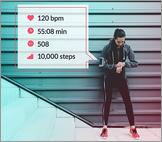
Mark A. Rothstein, JD, University of Louisville
John Wilbanks, Sage Bionetworks
Working Group Member: Susan M. Wolf, JD, University of Minnesota
Mobile devices, including smartphones and tablets, increasingly include apps that collect health information, such as heart rate, blood pressure, blood sugar, and other measurements. Using the internet to contact and communicate with large numbers of individuals, it has become increasingly common for various types of health research to incorporate mobile devices. Research conducted by academic medical centers and other traditional research institutions are governed by well-defined legal and ethical requirements.
In the last few years, however, "citizen scientists" have begun engaging in health research. These include independent researchers, as well as patients and their family members, who take advantage of direct-to-consumer genetic testing, patient access to electronic health records, social media that connect individuals with similar health conditions, and powerful computer algorithms that can search through large data sets. This type of research is generally not funded by any federal government agency and therefore is usually not subject to any regulation.
Although citizen science health research holds some promise, it also raises many risks, such as the possible lack of informed consent, inadequate privacy and security protections for sensitive data exchanged on the internet, the unknown qualifications of the researchers, and even the danger of negative health conditions caused by improperly drawn conclusions about prevention and treatment options.
To date, there has been very little study of the ethical and legal issues surrounding this new type of unregulated health research. A three-year grant from the National Institutes of Health will enable a team of 30 researchers from leading research institutions, health technology developers, and patient advocates to consider a wide range of issues, including the various types of mobile health research platforms, the potential applicability of various federal and state laws regulating research, possible models of self-regulation, and specific measures from online consent to integrating privacy protection in health apps.